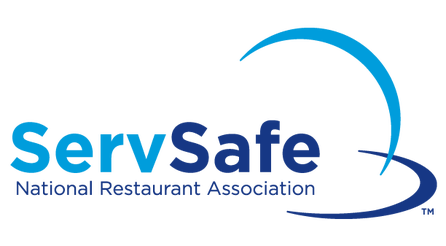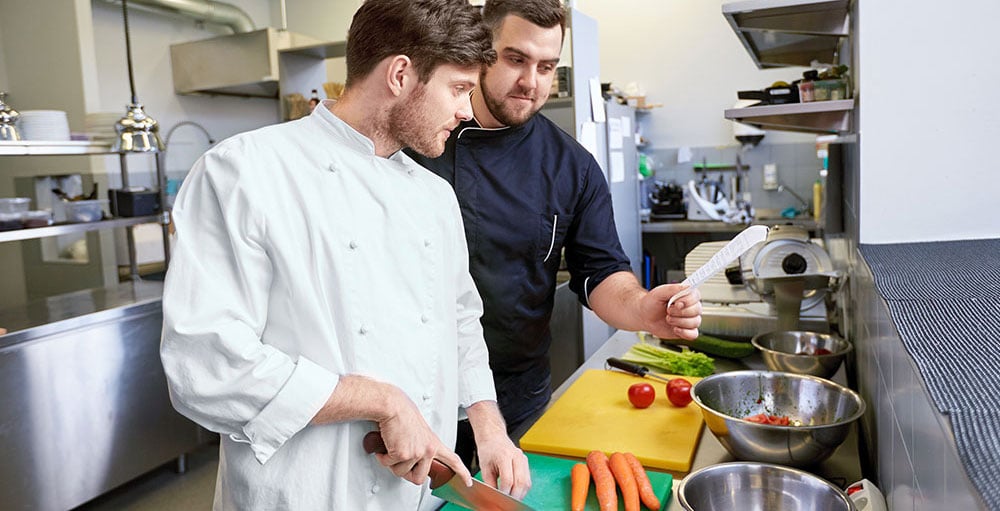Boost Your Task Opportunities: Why a Food Handler Certification Is a Must-Have in the Culinary Industry
In today's affordable culinary landscape, the significance of a food handler certification can not be overemphasized. As dining establishments and food service establishments significantly prioritize licensed staff, experts outfitted with this accreditation stand to obtain a substantial benefit.
Value of Food Safety And Security
In the culinary market, the importance of food safety and security can not be overemphasized. Ensuring the security of food is vital for safeguarding public health and wellness and keeping customer depend on. Polluted food can bring about severe health concerns, including foodborne ailments, which can influence individuals and result in considerable responsibility for food establishments. Applying strenuous food safety techniques is essential for any kind of culinary procedure.
Food security includes a series of treatments, consisting of proper food handling, storage, cooking, and offering strategies. Sticking to these techniques not only reduces the threat of contamination but likewise helps in following regional health guidelines. Appropriate training in food security enables culinary professionals to recognize prospective dangers and implement preventive procedures successfully.
Additionally, a strong dedication to food security can enhance the track record of a cooking facility, cultivating client loyalty and business growth. Customers are progressively mindful of food security issues, making it vital for food trainers to demonstrate their adherence to best practices. Inevitably, prioritizing food safety is not simply a governing requirement; it is a fundamental element of offering quality food service and protecting the well-being of customers.

Accreditation Demands
Food safety and security practices are only as effective as the individuals implementing them, making accreditation an important action for food trainers in the culinary industry. To get a Food Trainer Certificate, prospects have to usually finish a training program that covers vital topics such as foodborne ailments, sanitation, individual health, and secure food taking care of strategies.
Most qualification programs are made to suit numerous discovering styles, providing choices for online, in-person, or hybrid formats. Individuals must pass an evaluation to demonstrate their understanding of the material, with a minimal passing score frequently evaluated 70%.
The period of training can differ, with some programs requiring just a couple of hours, while others might cross a number of days. After successfully finishing the training course and examination, prospects obtain their certification, which is usually valid for three to 5 years, depending upon local regulations.
Revival often entails retaking the program or completing a refresher program to guarantee that food trainers remain updated on the most up to date practices and criteria. Conformity with these qualification demands not only improves specific knowledge yet additionally adds to the total safety and top quality of food solution operations.
Job Market Demand
The need for food trainers has significantly increased, mainly driven by the expanding recognition of food safety and health amongst customers and governing bodies. With the rise of foodborne diseases, dining establishments, catering services, and food manufacturing firms are prioritizing the hiring of licensed food trainers to guarantee conformity with health and wellness policies.
Additionally, the expanding restaurant field, specifically with the appearance of food distribution solutions and food vehicles, has developed a wealth of work possibilities for food handlers. The need for experienced personnel that can safely prepare and manage food has ended up being paramount. servsafe food handler certificate. In addition, as culinary organizations adopt extra strict security procedures, the value of a food trainer certificate has risen, making it an important property for job candidates
As a result, individuals getting in the culinary labor force are go right here locating that obtaining a food handler certificate not only improves their employability however also positions them favorably in a competitive job market that increasingly focuses on food safety and security and hygiene criteria.
Advantages of Certification
Obtaining a food handler certification uses many benefits that considerably improve an expert's standing in the culinary market. First and foremost, it demonstrates a dedication to food safety and security navigate to this site and health, which is extremely important in protecting against foodborne ailments. This accreditation outfits individuals with important expertise pertaining to risk-free food managing techniques, including correct storage, cooking temperatures, and hygiene procedures
Additionally, having a food trainer certification can boost a person's employability. Several employers prioritize prospects with this accreditation, viewing it as an indication of expertise and proficiency. This can result in much better work possibilities and potentially higher incomes, as licensed people are typically entrusted with greater responsibilities.
In addition, the accreditation fosters a culture of safety and security and accountability within the office. Keeping a food handler certificate can open doors to further educational and profession development possibilities within the culinary field. servsafe food handler certificate.
Actions to Obtain Qualified
Acquiring a food handler certification entails an uncomplicated process that can set people on a course to improved job leads in the cooking sector. The very first step is to discover an accredited program or training provider that provides food safety training courses. Several organizations offer both in-person and on the internet options, permitting versatility in knowing.

After successfully passing the exam, individuals will receive their food trainer certificate, which is typically valid for a details period, usually three to five years. To maintain certification, it might be necessary to finish correspondence course or retake the test prior to the expiration date.
Finally, it is very important to confirm any type of regional or state-specific laws concerning food trainer qualification, as requirements can differ. By following these steps, individuals can obtain their certification and significantly enhance their employability in the read this affordable culinary landscape.

Final Thought
To conclude, getting a food handler certificate is critical in the culinary market, as it ensures adherence to food safety standards and boosts employability. With the expanding demand for licensed personnel, this credential not just opens doors to job opportunities but additionally adds to career advancement and increased earning potential. Inevitably, a food handler certificate represents a commitment to safety and security and professionalism and trust, cultivating a culture of responsibility that profits both employees and employers in the food service market.